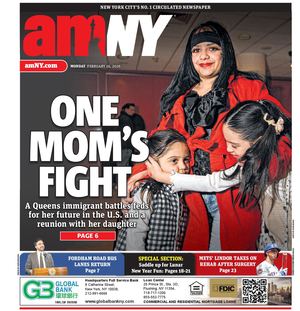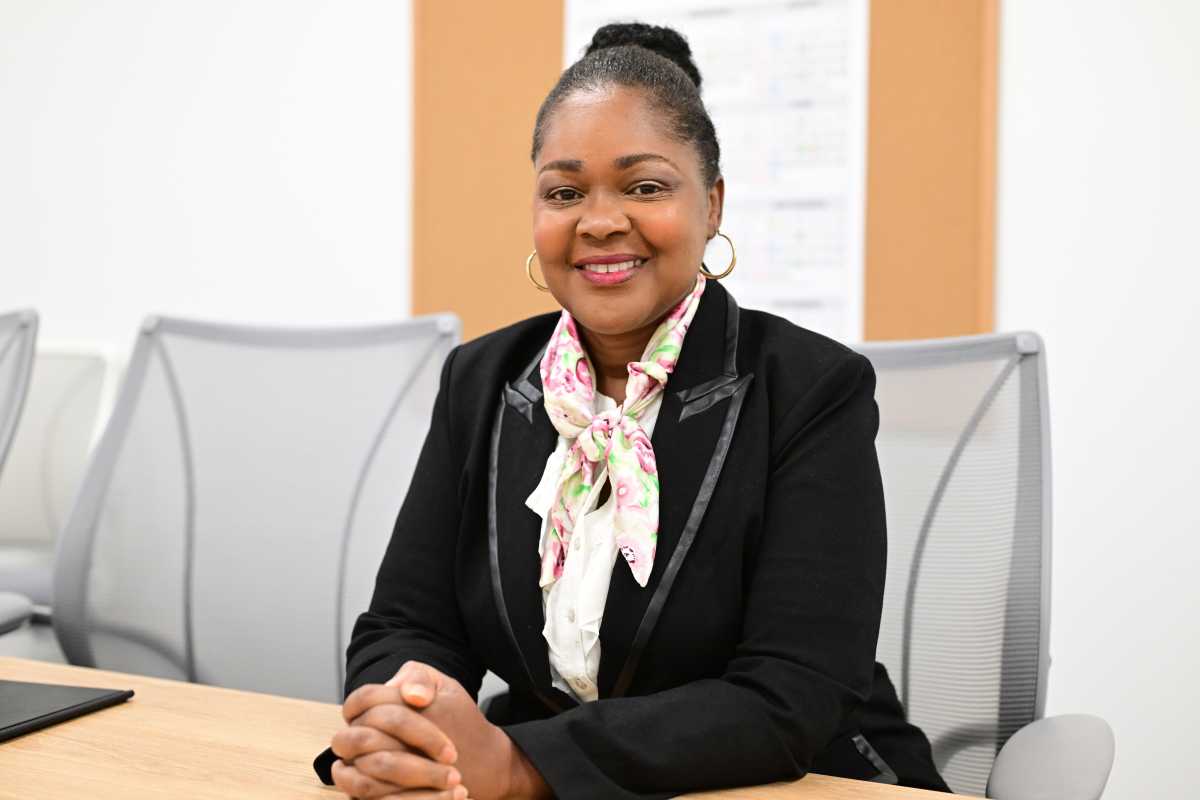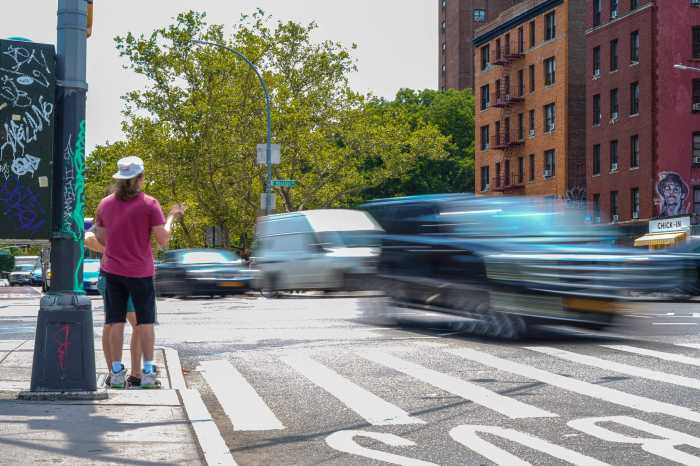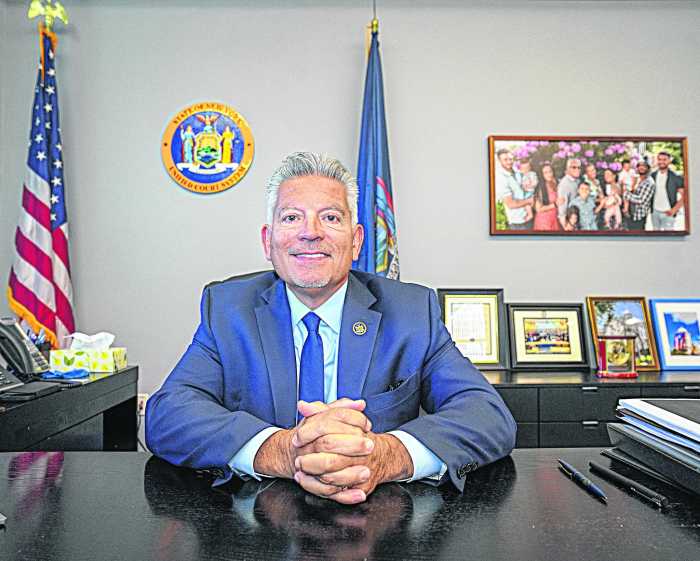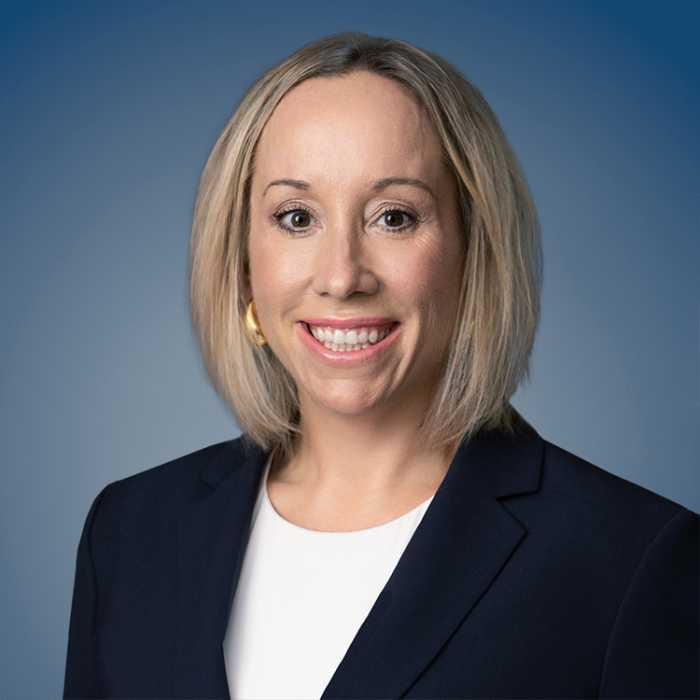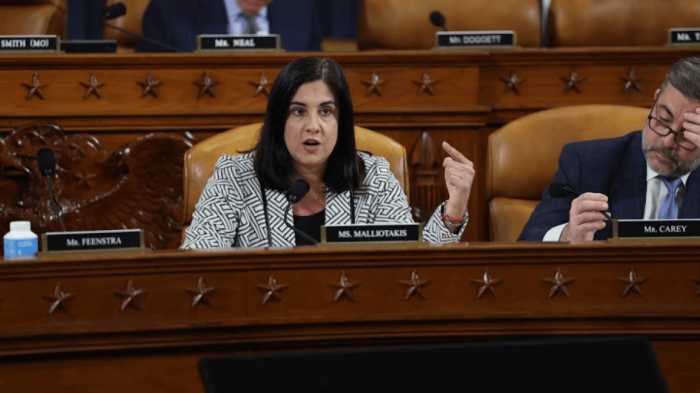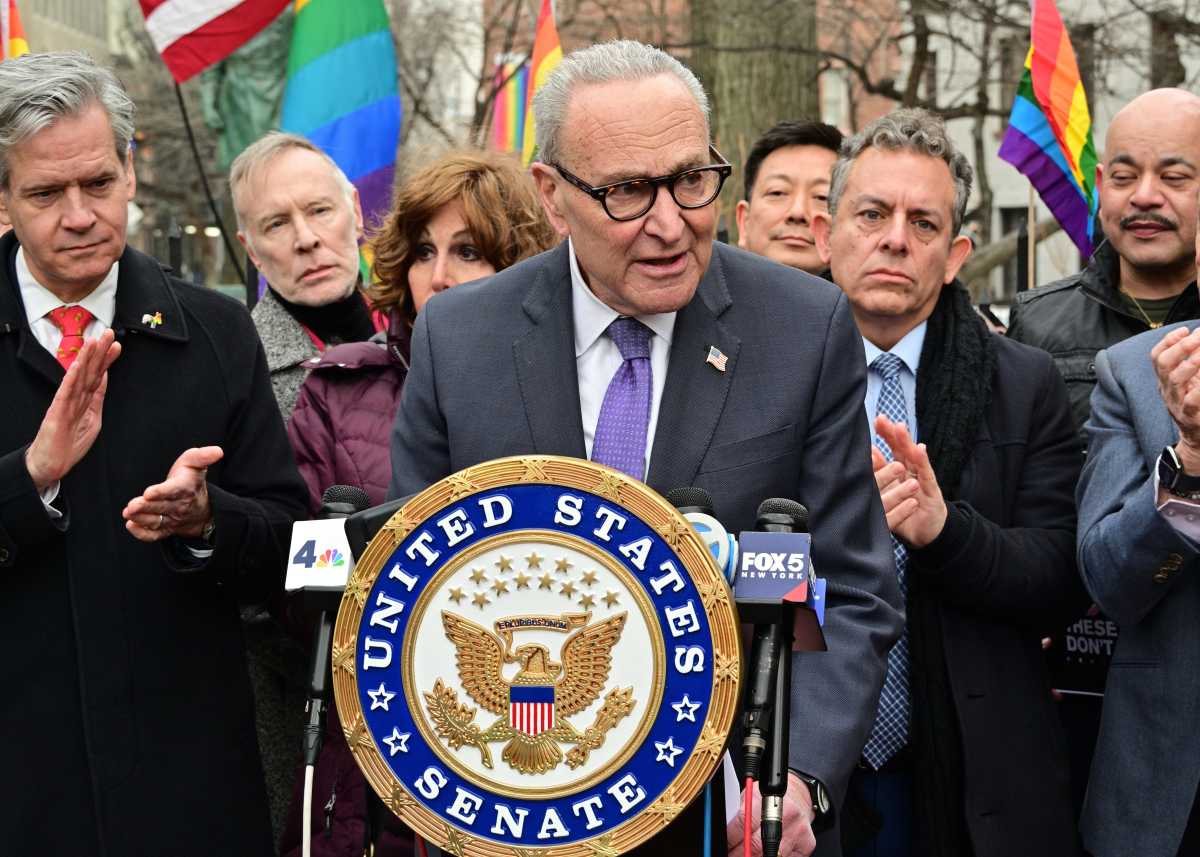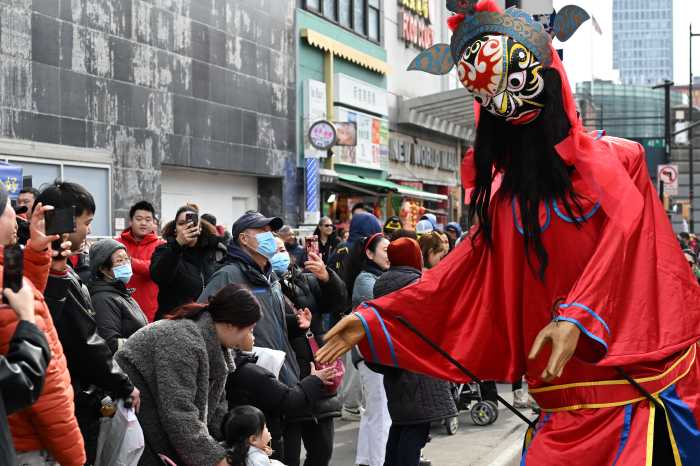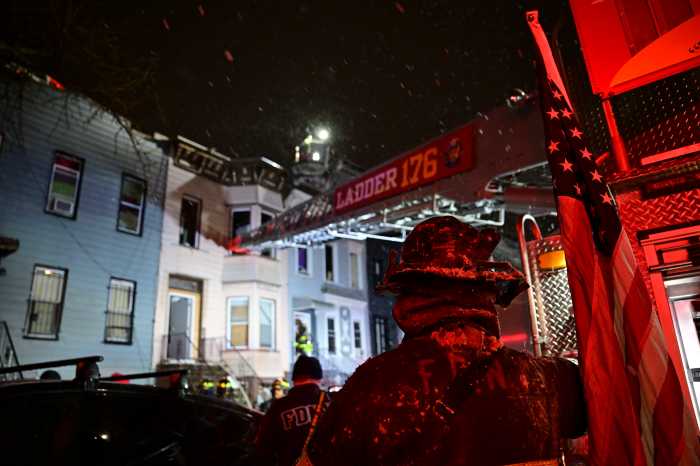When Karlene Dennis became the newly appointed executive director of the Franklin H. Williams Judicial Commission — the nation’s first commission dedicated to improving racial equality in the courts — she had already confronted the Trump administration’s efforts to curtail diversity efforts in government.
Dennis, who had been the commission’s assistant deputy counsel in her nearly 20 years there, was planning an annual conference earlier this year supporting diversity efforts in state’s courts around the country — when the administration pulled a grant that funded the event, forcing the commission to turn it into a virtual session.
Dennis said the federal government’s decision to pull the funds has only served to motivate her to spread its mission to other parts of the country.
“It’s empowered the organization to now be more self-sufficient like so many other organizations are doing,” said Dennis, adding the in-person conference will return next year.
Dennis, who was appointed to her new position this month, will take over in a moment when Trump has targeted “diversity, equity and inclusion” policies. But Dennis said the White House’s strategy has only “reinvigorated” the approach of New York’s state courts, where Chief Judge Rowan Wilson’s leadership has pushed a reformist vision of the justice system that emphasizes access to justice and rebuilding trust in the judiciary.
“We’ve been very fortunate to not be greatly impacted, and actually it’s given us renewed vigor to be that beacon on the hill,” she said.
Part of what the commission does is to create “pipeline programs” that provide mentorship, educational programming and legal fellowships in order to attract more people of color to apply for jobs in the court system. The other part of the job is to address racial bias through reports that highlight systemic issues and prompt change.
The commission, named after its founder and civil rights lawyer, diplomat and co-organizer of the Peace Corps Franklin H. Williams, was formalized in 1991 when it released a detailed report that found a severe lack of racial diversity on the bench and a perception among some New Yorkers that minorities are not fairly treated in the courts.
Williams insisted on establishing the commission with the independence it needed to criticize the system. Chief Judge Sol Wachtler, who recruited Williams to spearhead it, recalled him saying, “when you start digging into this problem, you’re going to create wounds, and wounds that can’t be covered over or cured with a Band-Aid.”
Some of its initial findings persist to this day. The commission released a report two years ago on the state’s family court system, which found that it was perceived as a “second-class court” with an unrepresentative number of judges of color sitting on the bench.
“The commission likes to think of itself as a trusted advisor to the administration, but just as we did with the family court report it’s so important to be a voice for others who may not have a voice directly and to to collect data and provide information that will help the courts ensure that all communities have access to justice and equity and racial fairness,” Dennis said.
Dennis’ desire to pursue a career in law and public service was inspired by her experiences growing up as an immigrant from Jamaica. She came to the U.S. when she was six and lived in the working-class Vanderveer Projects in Flatbush, Brooklyn. She first encountered racism in the New York City school system, when she was bussed from her neighborhood to an all-white school where she was one of only three girls of color in the class.
“You were running to catch the public bus because you were often chased, and the n-word was used quite regularly on the way to the bus stop,” she said.
When she graduated Brooklyn Law School, she knew she wanted to work in local government, and took a job with Councilmember Una Clarke, the first Caribbean-born woman elected to the City Council, where she served as legislative director for several years before establishing a general practice in Flatbush for nearly a decade.
“I knew I was where I wanted to be because I was helping out the community. And I knew… how ugly communities could be, but I also knew that if you worked hard and that if you got your education, that you could overcome,” Dennis said. “So that always drove me as well to be the person that can make a difference”
Representation matters
The commission consists of approximately 20-plus members including judges, court employees and administrators, and attorneys who meet monthly to discuss initiatives to increase representation and fairness within the court system.
As executive director, Dennis is tasked with putting the commission’s vision into play through programming and research. While the court administration leadership diversified under Wilson, the first black chief judge in New York’s history, there are many parts of the court system that don’t reflect the diversity of the community they serve.
Administrative Chief Judge Joseph Zayas told amNY Law nearly a year ago that Manhattan Latinos represent almost 25% of the population, but out of the 43 supreme court elected justices for the borough, there is only one Latino judge. The commission’s family court report found that as of 2022, 61% of family court judges in the city are white in a system that is predominantly “utilized by people of color.”
Some of the commission’s recommendations are easier for the court system and legislature to adopt than others. For instance, after the release of the family court report, the state legislature held a hearing discussing its findings that ended up increasing the number of judgeships to reduce court delays for children and families and improve the perception of fairness.
As head of the commission Dennis takes a multi-prong approach to increasing diversity in the court system. The commission doesn’t directly recommend judicial candidates to the independent screening panels the governor and New York City mayor use to make judicial appointments, but it does insist the screening panels themselves are made up of diverse members.
“We look at the screening panels, we ask who’s on [them]? Can you send us a list? And please be mindful of diversity as you’re picking people for these screening panels,” Dennis said.
Its broader strategy for diversifying the court is to introduce candidates for court jobs from communities of color to drive interest in a career.
“For so many young people in communities of color, people were not always invited to law school and to the legal profession,” Dennis said.
To boost that pipeline the commission funds a one-year legal fellowship program that pays $70K to recent law school graduates to encourage them down a path of public service as they rotate with different judges, getting hands-on experience, writing decisions and doing legal research. It also offers legal internships for both undergraduates and law school students.
For practicing attorneys, it manages a judicial mentorship program that pairs attorneys who wish to ascend to the bench with judges, and has resulted in approximately 30 mentees becoming judges. The commission also runs an Adopt-a-School Program where its commissioners and judges visit schools to speak with students about civil responsibility and exposing them to careers in the courts.
The other side of its mission is around what Dennis referred to as “access-to-justice issues,” or barriers for people of certain class, racial and ethnic backgrounds to have adequate representation in housing and family court.
“We want to ensure the access to court interpreters, the administration of justice and making sure that the community has access to those services,” Dennis said.
Dennis said that her vision for the new post involves seeing through an ongoing research report that looks into recommendations that could improve the diversity in the composition of juries.It has held three hearings with stakeholders, judges, public defenders and bar associations to discuss jury outreach and will hold its final healing in Brooklyn on December 9th.
She also mentioned that she wants to expand the commission’s Professional Development Academy for court employees, which aims to promote diversity in leadership by helping court staff improve resume writing, interviewing, and communication skills, which has led to a 40% promotion rate among participants.
“It’s almost like chipping off a little bit at a time but on different fronts,” she said of the commission’s programming. “Because in order to make an impact, right? You’re dealing with systemic racism for many years, that’s entrenched in so many parts of it that you need this myriad approach to address the different issues of mistrust here.”
